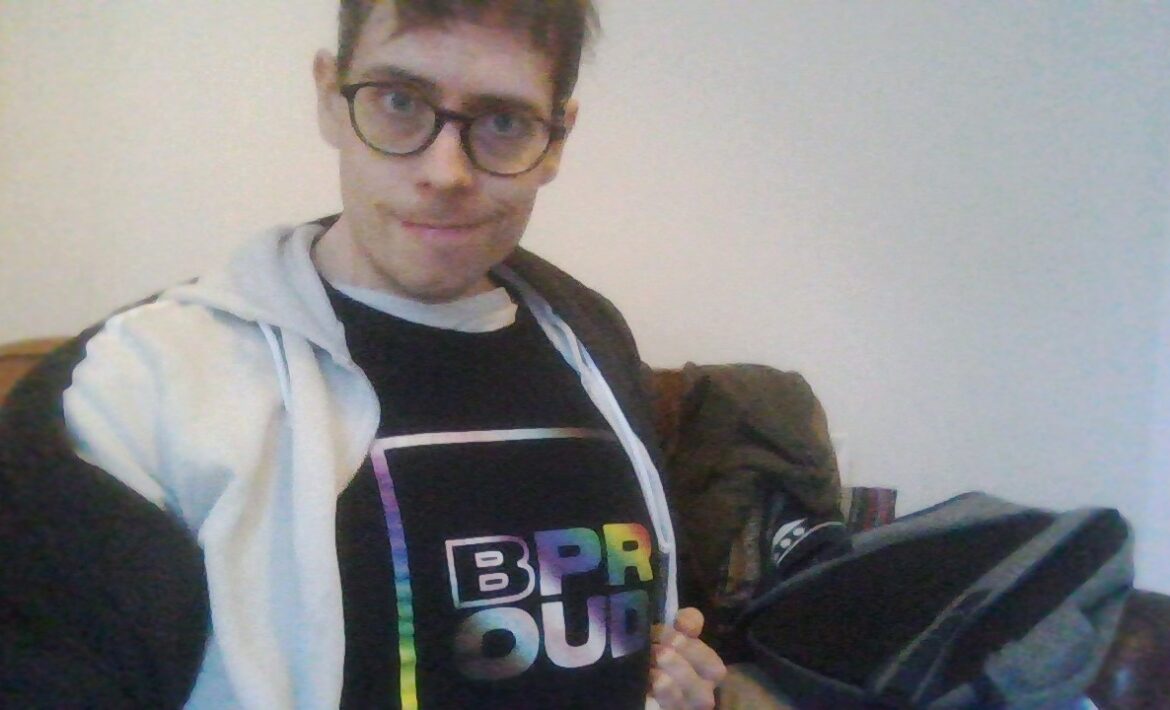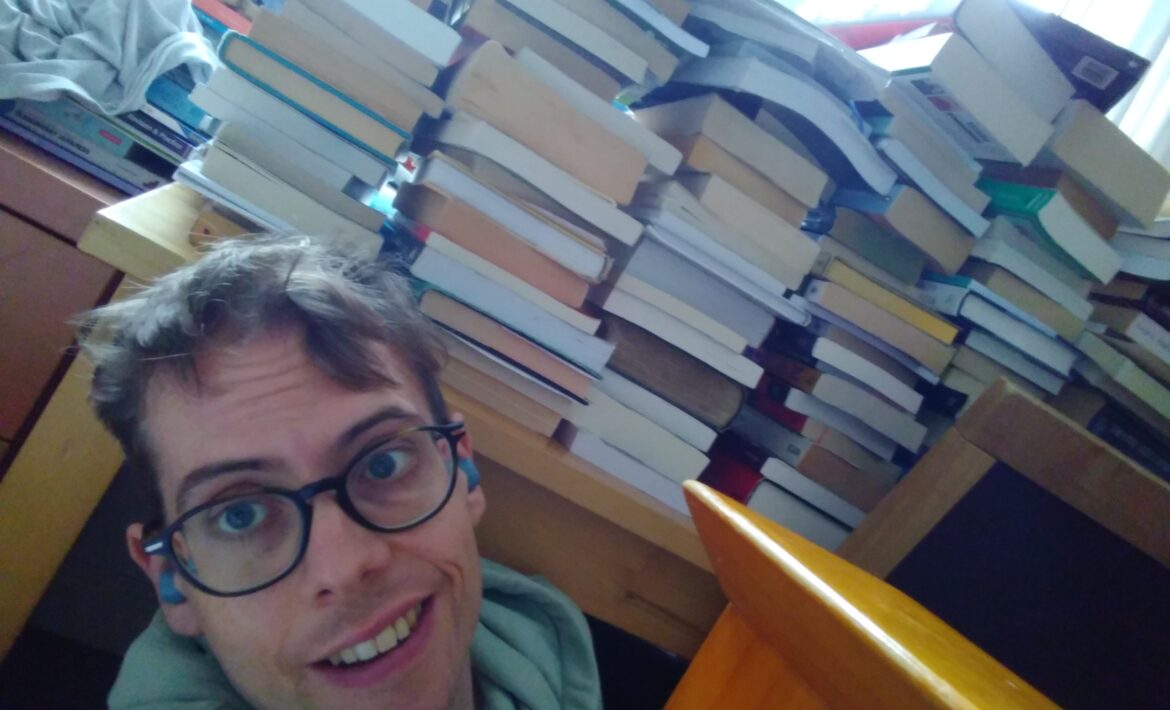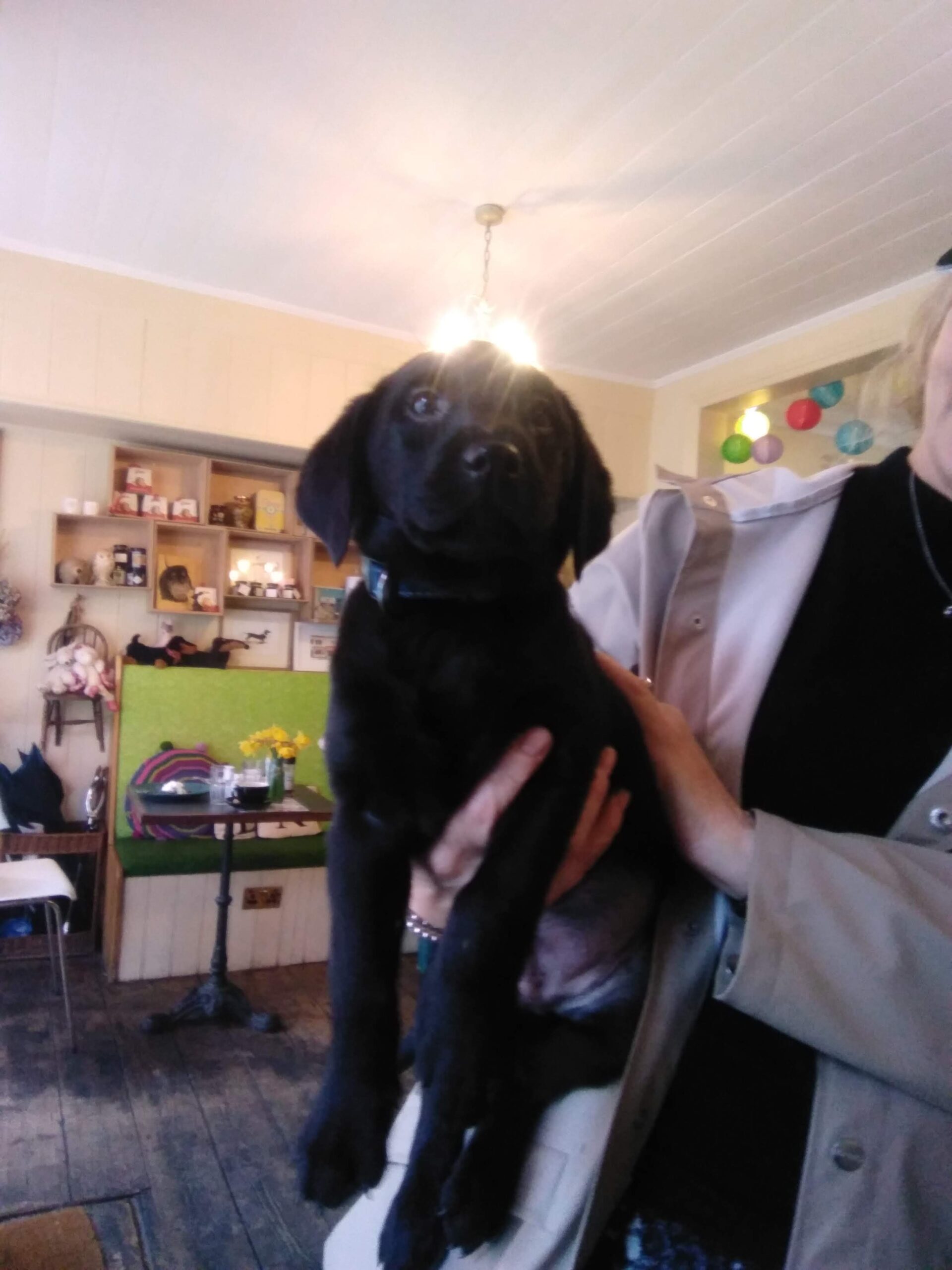
Monday 21st March 2022: We’re All Neurodiverse – But Not All Neurodivergent!
Hi everyone!
Before we begin, the puppy in the picture is not mine, this is the gorgeous Louis/Leo – a puppy I met at my partner’s work. He’s slightly godlike. I had the privilege of holding him for 5 minutes, when he was falling asleep in the crick of my neck.
How are you? The blog from two weeks ago was pretty long and intense, so I think most people will have slept on that one. No problem – addiction is a difficult topic and no-one is supposed to have to deal with that on a Monday morning, without context. But it was still a lot to even write in a 4 hour rush of anxiety.
The weirdest response was on Whatsapp, though:
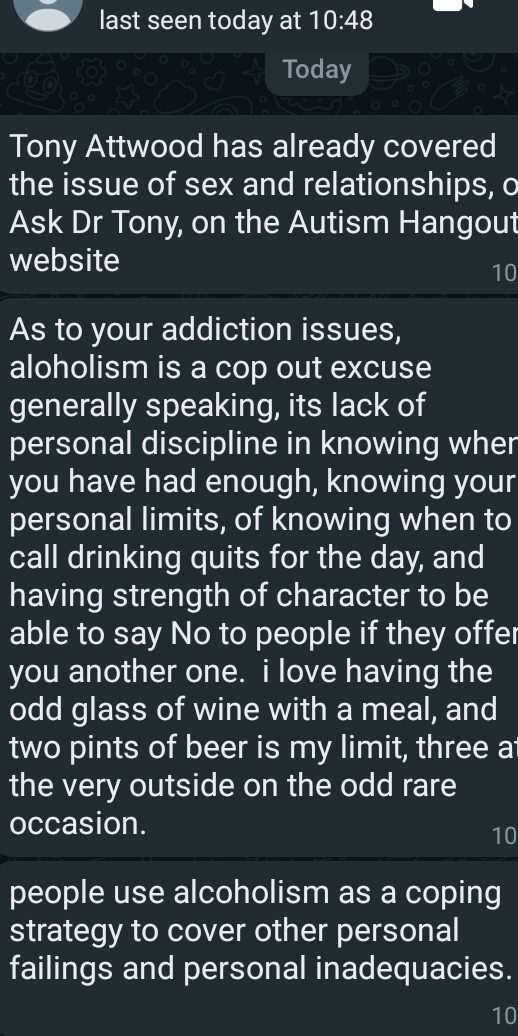
Yeah, that wasn’t what anyone needed, let alone me. However, it didn’t knock me out for days as it might otherwise have. I didn’t have a meltdown. I just told this person, with all due respect, to fuck the fuck off.
The week after, I just didn’t have the brain space available. I need to have Sundays in order to recuperate, so I’m no longer writing the blog on that day. If I have the spoons, I will write it Monday morning or during the day. If I don’t, my other work takes priority.
What is neurodiversity?
Neurodiversity, as I’ve spoken about a lot, both on here and during my speaking engagements. For anyone who needs a refresher, here it is:
As most of you will know, in 1998, the Australian sociologist Judy Singer coined the term neurodiversity. That’s what we’ll be talking about in this blog. The usage rule nowadays is: neurodiversity is the entire spectrum of neurological difference, like biodiversity. You’re neurodivergent if your neurology is unlike the norm in present-day society. If your neurology does fall in that norm, you’re neurotypical. There is a lot of misunderstanding around the terminology, which Singer herself addresses in the talk below:
TLDR: Judy Singer makes it clear: Neurodiversity is a political idea, not a diagnostic criterion. You can’t diagnose someone as ‘diverse’. It’s like saying someone is ‘BAME’, in the UK, standing for Black and Minority Ethnic – which essentially means ‘everyone apart from white people’. It pushes down the web of complex identities in aid of allowing white people to be politically correct. The changing modes of language around queer identities are also vulnerable to this – rather than defined by ourselves, we are defined by our difference from the ‘norm’.
As a part of identity politics, neurodiversity is a tool to understand social inequalities that are insufficiently explained by race, gender, class, gender identity, immigration status, ethnicity and sexuality. Disability is a more complex story, as, within the social model, neurodivergent people are also disabled. Not because of an innate ‘lack’ or due to a painful chronic illness. A society that does not requires spoken language is no less than one than one that does and deaf people are equal participants in it.
Autism rights activists used to refer to people with ADHD, Dyspraxia, Dyslexia and other neurodivergences as ‘neurokin’. Where Singer takes the next step is to see this as part of the same field of experiences, sociologically, in how power is distributed among us. I like to think of autism as a nexus of neurodivergence – a phrase which I probably unconsciously stole from someone (if I stole it from you – please contact me, I love the phrase and it explains so much). This is because autistic people are always also ADHD-ers, Dyslexics, Dyspraxics etcetera. Autism never occurs alone.
Neurotypicals…?
On days where I struggle with impostor syndrome, I sometimes wonder if there’s really anyone who is a. not queer and b. not neurodivergent. Well, that just shows in how much of a bubble I am (nothing wrong with that – it’s comfortable here!). There are many people who would agree with that though.
Trouble is, they’re all neurotypical. It’s strange, when discussing autism, the peole who are most comfortable conceiving of themselves as neurodivergent are NTs. I don’t know why. Maybe it’s a bit like the phrase “we’re all a little bit gay” that people said in the 90s. Not to me, because my teenaged self might have been slightly less afraid to snog boys. But hey, apparently people did.
It could also be a subconscious power trip. If you, as a privileged person, are able to understand and, as it were, conquer someone else’s state of being – aren’t you even better than everyone else around you? For more on the complex psychology of the neurotypical please see my previous blogs ‘On Neurotypicals’. For now, here’s some cake.
I’ve even used it in my Autism Experience Group meetings, 3 years ago.
Highly Sensitive People – What About It?
The most serious example of this, particularly in autism rights, is the idea of the Highly Sensitive Person. I do a training informed by research on both and have found myself arguing against the use and self-definition of HSP. Not to do down anyone who does, but the term is, itself, ableist. It takes a whole part of the autistic and neurodivergent experience and makes it into a personality trait, which can only be celebrated, not protected. Despite what it says on my website, being autistic is not a superpower, it’s really fucking difficult. And it’s ideas like HSP that allow old stereotypes about autistic people to thrive. I didn’t believe I could be autistic, since I felt everything, constantly, never-ending and always on and all of the emotions, not just mine, but those of tonnes of other people, animals, even pieces of fruit in road safety adverts and sounds and smells and lights and sensations and people all the people all the goddamn time and it never STOPPED.
Erm…
Anyway.
Here’s a good, short, video on the topic of being HSP
So? What do I do?
Well, for one, if you’re autistic, that’s because of who you are. It is fundamentally tied up with your identity. We are autistic, just as the vast majority of us just is LGBTQIA+. That’s not just ok – that is what it is. Calling it ‘Highly Sensitive’ when the criteria for identifying that way are identical between HSP and autism is to continue highly damaging stereotypes. You’re part of our family – don’t be ashamed of us. We get it.
When you’re neurodivergent but not autistic, that’s amazing! We’re your kin – let’s help each other get through the messiness of life.
When you’re neurotypical – that’s great for you! Despite potential anxiety from some, neurotypicals won’t look to be part of the autistic community. There’s nothing in it for them. They have no spaces to conquer, no boxes to tick. People who identify with autistic people do so for a really good reason – because they feel safe with us. Like being gay, trans or both – it takes a lot to live a marginalised life that society still deems to be a frippery, a choice made by middle class weirdos. It takes even more, like Adriana White says, when you’re not white.
Think of it this way. If you’re neurotypical and want to engage with the autistic community for no other reason than ego, you’ll get bored. The way we are when we’re together is often disorienting for NTs. That’s ok, but they’ll go off somewhere having fun with others like them, in busy pubs and on dance floors.
The vast majority of the world is and will always be neurotypical. And that’s ok. Just don’t punish us for not being like you. We can’t all be neurotypical Karen.
Fin
Thank you for reading this week’s blog! It’s a bit of a shorter one this week, since I was trying not to crumble under too much work and struggled with attention earlier today. I’m going to post it on everything now. My partner and I are hosting a very special friend from Wednesday for a few days. We can’t wait.
All my love,
Jorik
